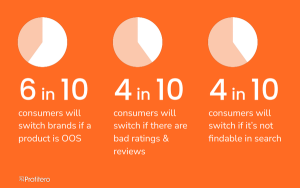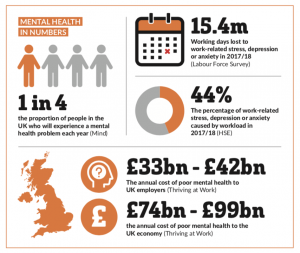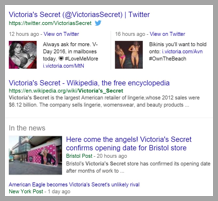Digital media are changing the manner in which people look for information. Brands and businesses are constantly improving their online strategies to stay relevant. But academic institutions are sometimes negligent when it comes to a sensible online presence.
Each generation uses technologies in their own ways. Colleges and universities have young clients. According to a 2012 Google report, 1 in 10 students search for college information online .
Almost 32% of students take at least one class online. Their interest boosts the popularity of e-learning opportunities. Education and course-related Google searches grow all the time. But many education-marketers aren’t using this information in the best possible way.
What does it take to make a college website popular with prospect students? Here are some basic factors for success.
Snippet Optimization
Page titles and meta descriptions are used by search engines to form the entry for a page in their search results.
The title tells people what a page is or does. The snippet information, taken from the meta description, is like your mini-advertisement. It helps people decide whether to explore the website or not.
Do all your pages have a <title> tag that makes sense when seen in a Google search result? If some of the titles are too general, rewrite them in descriptive way. Remember that every page needs its unique title.
Do the pages use the meta-description? Is it a descriptive sentence that sums up the content found on the page? Is it convincing? Inviting?
Link Building
Links show search engines how reputable a website is.
Growing quality links from other sites takes time. Often it depends on the quality of your content.
Quality is much more important than quantity. Links from popular, targeted websites in the education field will count much more than generic links from forums.
Having a clear strategy for getting backlinks from specific and highly targeted educational and authority websites is crucial for the success of link building.
Sharing Your Expertise With The World
Educational websites are a great source of valuable and unique information.
Use your unique information to create articles and blog posts. Use some to write guest posts for authority sites like Forbes.com, Economist.com or wsj.com. Most of the reputable websites have contributor programs. It’s one of the efficient ways to gain quality links for a link building strategy.
Powerful Social Media Presence
Your potential students are on social media. So are your current students and your professors. Use that presence to build a powerful online community.
Some of the best colleges and universities are active on multiple social channels. They carry out creative campaigns that easily go viral. Fordham University, for example, carried out a fun campaign under the hashtag #Fordham4me. The campaign ran on Tumblr, Twitter, Facebook, and Instagram, encouraging new and potential students to share their own content about the college.
The hashtag generated a lot of buzz, creating tons of quality content and leading to a sensible online presence that relied heavily on user-generated content.
Video Strategy
Video is a powerful tool for universities because it provokes an emotional response and can easily go viral.
Create a YouTube channel and use the Facebook instant video option.
Don’t forget that YouTube is the world’s second biggest search engine!
Press Releases
If some of the university researchers make an important discovery or plan unusual research in the future, you should definitely harness the power of web-based press releases.
Promoting successful students, awards, pioneer courses can put your university in the headlines, as well.
Active Participation In Online Communities
If you notice increased interest on website like Reddit or Quora, create an account there. You’re the best source of information.
In addition, you are able to provide links to the college website and thus help both potential students and the marketing department.
If somebody has a question, don’t be afraid to answer. Avoid disputes and allow people to share their opinion.
Hand-Picked Related Articles:
* Adapted lead image: ![]() Some rights reserved by francisco_osorio
Some rights reserved by francisco_osorio
7 Basics To Boost College and University Website Popularity
The post 7 Basics To Boost College and University Website Popularity appeared first on Search Engine People Blog.
Search Engine People Blog(33)
Report Post









